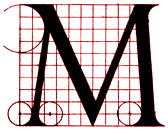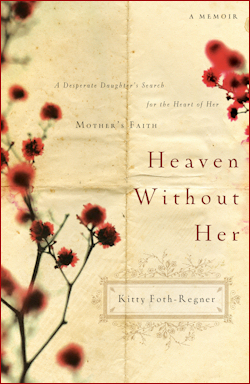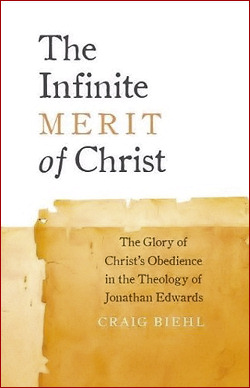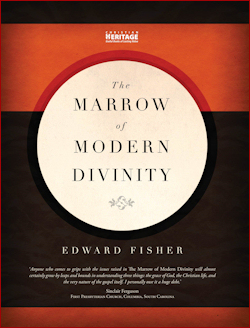by Phil Johnson

 y desks (both at home and at the office) are piled high with books and other items I hoped to blog about this year and never got to. Not that I lacked opportunity; but I lacked motivation. After 5 years of blogging, I'm tired of writing on demand and (in case you haven't noticed) my posts for the past year or so have tended to reflect only whatever I'm most keenly interested in at the moment. I've been trying to stay away from themes and series that obligate me to write the next post on a specific topic in order to meet the daily deadlines.
y desks (both at home and at the office) are piled high with books and other items I hoped to blog about this year and never got to. Not that I lacked opportunity; but I lacked motivation. After 5 years of blogging, I'm tired of writing on demand and (in case you haven't noticed) my posts for the past year or so have tended to reflect only whatever I'm most keenly interested in at the moment. I've been trying to stay away from themes and series that obligate me to write the next post on a specific topic in order to meet the daily deadlines.Perhaps the most distasteful thing about blogging (to me) is writing reviews of books I've read, films or video series I have watched, or lecture series I have listened to. Challies does book reviews (and such) so much better than anyone, and why should I duplicate his efforts? Besides, after I've read or listened to something, my mind wants to move on. Obligating myself to write reviews is the closest thing to a book report I can think of, and I have hated book reports since junior high school.
On the other hand, I have reviewed book manuscripts professionally for various Christian publishers for the past 35 years, so you might think book reviews would be easy work for me. But the kind of reviewing I usually do for publishers is not intended for public consumption; I write a critique that will be read only by a single editor, so I can be as brief and blunt or long and detailed as I like. The editor often only wants a thumbs-up or thumbs-down from a trusted source with a few good reasons for the recommendation (or fulmination, as the case may be). Every passion from bitter sarcasm to weepy gratitude is suitable for that kind of review.
For obvious reasons, writing reviews for public consumption is a completely different thing—and for me, it's a lot harder work.
So I have accumulated a pile of books and stuff on my desk that I've read and planned to review, but the sins of sloth and procrastination have defeated me. But now I need to clear the desks. So today I'm going to choose the best stuff out of those piles and give each item a one-paragraph recommendation. Here (in no particular order) are some of my favorites from all the books I read and resources I have devoured in 2009:
 Heaven Without Her, by Kitty Foth-Regner. This is the very touching personal testimony of a secular feminist whose only interest in spiritual things tended toward New-Age mysticism—until the impending death of her mother brought her face to face with some difficult questions that have no satisfying answers outside biblical Christianity. I was greatly moved by this book, perhaps because I read it in the wake of my own mother's death in January. The book is a graphic illustration of how God providentially draws and redeems people—often people who (from a human perspective) might seem the most unlikely candidates for conversion. Kitty Foth-Regner's worldview at the start of her journey could hardly have been more radically at odds with the faith that finally brought her settled peace. But the sovereign hand of divine Providence (evident throughout her testimony) wisely and lovingly led her through some of life's bitterest trials and sorrows into the unimaginable riches of grace. It's a tender story, well told.
Heaven Without Her, by Kitty Foth-Regner. This is the very touching personal testimony of a secular feminist whose only interest in spiritual things tended toward New-Age mysticism—until the impending death of her mother brought her face to face with some difficult questions that have no satisfying answers outside biblical Christianity. I was greatly moved by this book, perhaps because I read it in the wake of my own mother's death in January. The book is a graphic illustration of how God providentially draws and redeems people—often people who (from a human perspective) might seem the most unlikely candidates for conversion. Kitty Foth-Regner's worldview at the start of her journey could hardly have been more radically at odds with the faith that finally brought her settled peace. But the sovereign hand of divine Providence (evident throughout her testimony) wisely and lovingly led her through some of life's bitterest trials and sorrows into the unimaginable riches of grace. It's a tender story, well told.
 The Infinite Merit of Christ, Craig Biehl. I absolutely love this book. I like everything about it from the page design (with ample margins, a feature that has fallen out of fashion nowadays); to the flow of Biehl's (and Jonathan Edwards's) logic; to the conclusions Craig Biehl draws from his careful analysis of Jonathan Edwards's writings. The book is a study of the doctrine of justification (my favorite theological topic) from the writings of Jonathan Edwards (my favorite post-Puritan New England theologian) with specific emphasis on the significance of Christ's obedience (my favorite aspect of justification). Biehl provides a helpful rebuttal to several currently-popular points of view that have (for various reasons) downplayed the importance of imputed righteousness and rejected the significance of Christ's human obedience to Moses' law. This is a book to be reckoned with in all those debates. I got two copies, one for my shelf of Edwards studies and the other for the "justification" section of my "doctrine" stacks.
The Infinite Merit of Christ, Craig Biehl. I absolutely love this book. I like everything about it from the page design (with ample margins, a feature that has fallen out of fashion nowadays); to the flow of Biehl's (and Jonathan Edwards's) logic; to the conclusions Craig Biehl draws from his careful analysis of Jonathan Edwards's writings. The book is a study of the doctrine of justification (my favorite theological topic) from the writings of Jonathan Edwards (my favorite post-Puritan New England theologian) with specific emphasis on the significance of Christ's obedience (my favorite aspect of justification). Biehl provides a helpful rebuttal to several currently-popular points of view that have (for various reasons) downplayed the importance of imputed righteousness and rejected the significance of Christ's human obedience to Moses' law. This is a book to be reckoned with in all those debates. I got two copies, one for my shelf of Edwards studies and the other for the "justification" section of my "doctrine" stacks.
 The Marrow of Modern Divinity, by Edward Fisher. This is the book that sparked the Marrow Controversy in eighteenth-century Scotland. That's one of my favorite episodes of theological controversy ever, and it continues to be one of the most important intramural debates among Calvinists. Thomas Boston and the Erskine brothers were on the angels' side in that debate, in my assessment. They and their allies are sometimes known as "The Marrow Men." Their opponents were high Calvinists of a severe and and anti-evangelistic sort. The high-Calvinist group held to a cluster of ideas that to this day surface and resurface in Internet forums and tend to breed hyper-Calvinism. I wish more of today's Calvinists had studied the Marrow controversy. I think a lot more gracious, tenderhearted, and evangelistic brand of Calvinism would be the result. (Here's a series of messages by Sinclair Ferguson on The Marrow, if you want to get started.)
The Marrow of Modern Divinity, by Edward Fisher. This is the book that sparked the Marrow Controversy in eighteenth-century Scotland. That's one of my favorite episodes of theological controversy ever, and it continues to be one of the most important intramural debates among Calvinists. Thomas Boston and the Erskine brothers were on the angels' side in that debate, in my assessment. They and their allies are sometimes known as "The Marrow Men." Their opponents were high Calvinists of a severe and and anti-evangelistic sort. The high-Calvinist group held to a cluster of ideas that to this day surface and resurface in Internet forums and tend to breed hyper-Calvinism. I wish more of today's Calvinists had studied the Marrow controversy. I think a lot more gracious, tenderhearted, and evangelistic brand of Calvinism would be the result. (Here's a series of messages by Sinclair Ferguson on The Marrow, if you want to get started.)
Anyway, twenty years ago, before the Internet made used-book finding fairly easy, I looked high and low for many months for a copy of this book. When I finally found one, all I could get was a terrible edition printed by Jay P. Green in the 1960s or '70s with a small but too-bold san-serif typeface, narrow margins, and an ugly (but sturdy) green buckram binding. A year or so later I got a copy of The Marrow with Thomas Boston's annotations as part of the superb complete works of Thomas Boston published by Richard Owen Roberts. (If you use Logos, you can download Boston's complete works here, free. If you don't use Logos, it's worth getting, just to have this set.) Over the years I have located and acquired about a half dozen different quality editions of The Marrow.
But the 2009 edition from Christian Heritage Books is the best one yet. Again, major kudos for the generous margins, which include sidenotes with Thomas Boston's annotations. This is a slightly oversized book, befitting the book's historic importance. If you fancy yourself a Calvinist and have never even heard of Edward Fisher's The Marrow of Modern Divinity, shame on you. Buy one of these, get Ferguson's lectures, and study this chapter of Calvinist history. Another good place to start is John MacLeod, Scottish Theology in Relation to Church History since the Reformation (Edinburgh: Banner of Truth, 1974)—which book has a whole chapter dealing with the Marrow Controversy. If you have sufficient interest to read a more definitive work, I recommend David Lachman's excellent Ph.D. dissertation (St. Andrews) titled The Marrow Controversy 1718-1723—but it is very hard to come by.
- The Book Academy's Puritan Library. Despite what it sounds like, this is not a book or a set of books but a collection of PDF files on DVDs. It is an exhaustive Puritan library, plus the complete works of Spurgeon—the kind of resource people thirty years ago would have gladly given thousands of dollars for access to. The complete 10-DVD set is available for a few hundred dollars. I obtained a copy just a few weeks ago and have only barely begun to delve into it, but I plan to spend lots of time with it in the days to come.
- David Brainerd: A Flame for God, by Vance Christie. This is a new, highly readable, supremely edifying biography of Brainerd. I had the privilege of reading it more than a year ago when it was still in manuscript form. The publisher sent it to John MacArthur for review, and he wrote the foreword. (I intercepted the manuscript and read it myself before turning it over to John MacArthur. Shame on me. But it was worth it.) I recommended the book in an earlier blogpost here, so I won't say much more about it, except to say that if you didn't get it when I recommended it, do it now.
- Risking the Truth: Handling Error in the Church, by Martin Downes. This is a refreshing compilation of articles on dealing with heresy and heterodoxy in the church, compiled and edited by Martin Downes, better known to Pyro readers as the blogger-in-chief over at the "Against Heresies" blog. I'm not always a big fan of symposium-style books (even though I have contributed to a few). But this one really hangs together. Keep it by your bedside and read a chapter a night. Good stuff.
- Dr. John MacArthur, Jr.: The Prince of Expository Preaching, by Hokyeom Kim. A short biography and long analysis of the ministry of my pastor. I had never heard of this book and had no idea it was being written until I saw the finished product. It's fascinating reading, and in general, I think, a helpful and insightful analysis.












17 comments:
Thank You for the book reviews
Happy New Year
Delighted to see three Christian Focus titles in your top seven.
We must make "Stay Thirsty, My Friends" the new slogan for the blog somehow. I use it at work all the time, and it's perfectly cryptic for those who aren't in the know.
"Stay Thirsty, My Friends"
Watching too many television commercials??? :-)
Nice post. Thanks.
"..but the sins of sloth and procrastination have defeated me."
I have a problem with being lazy. I think it has to do with being motivated.
I remember what Maximus asked Cicero in the film 'Gladiator', and his reply:
"Maximus: You don't find it hard to do your duty?
Cicero: Sometimes I do what I want to do. The rest of the time, I do what I have to."
The Pyros are certainly candidates for "most interesting [men] in the world."
"Stay thirsty," befits this avocation of yours. Heb. 10:24.
For my part, I'm sorry to learn (re-learn?) that you don't like writing book reviews. I love reading your book reviews.
pierson --
Where have you been? You come out of the woodwork to make fun of our cultural literacy?
Stay thirsty, my friend. :-)
I agree, even though I read a good amount of books I rarely feel like sitting down and writing about them. I prefer to write about things that hit close to home for me.
turk--
I've been around, my friend.
Question: Have you ever put yourself in an awkward situation just to see how it feels? :-)
I 2nd Dan's observation. Some of the best books I've ever read have been your recommendations!
Thank you. I have noticed several quotes from Biehl's work around the blogosphere lately, and it's on my "to buy" list. I had not heard of "Heaven Without Her," though, and as a one who was saved out of a dead churchianity growing into agnosticism and what I dubbed "feminism by necessity", I am really looking forward to reading that one. Good solid contemporary testimonies of clearly Spirit-made conversions are hard to come by and always welcome. We need those. I need those. Thank you again for pointing us to that.
I am developing a collection of books on the Marrow Controversy and its aftermath. I have a different edition of the Marrow with Boston's notes. While the material is excellent, as you suggest, it is horribly TEDIOUS to read. However, I have added books related to the Secession Church, which was founded by the Marrowmen, especially the sermons of Ralph and Ebenezer Erskine. They are outstanding, and I encourage a person to continue from the Marrow to reading them. If you look up the Erskines on Amazon, you should see a reading list come up that I have put together concerning them, including the Marrow episode. In the US, the Associate Reformed Presbyterian Church (Associate refers to the Associate Presbytery, the formal name of the Secession Church) is derived from the Marrow controversy, and their seminary is named in honor of the Erskine brothers.
Cool and wow!
I didn't realize that you were a fan of the "Marrowmen," Phil. The Erskines, along with Jonathan McLeod Campbell, and Jonathan Fraser of Brea (a forerunner) are all great "Calvinists;" I like to refer to them as "Evangelical Calvinists."
Another book that is great reading along with Fisher's is T F Torrances': Scottish Theology: From John Knox to Jonathan McLeod Campbell.
The Erskines rock!
I knew there was a reason why I like you, Phil :-).
You totally blew it on the recommendation on The Marrow of Modern Divinity, by Edward Fisher. You gave a 3-paragraph recommendation, not 1.
As an aside, I'm wondering is Dan Phillips gonna get a recommendation for his book from Challies and Johnson.
A good place for one to wet their appetite for the book "The Marrow of Modern Divinity", by Edward Fisher, recommended by Phil, is by Googling "Marrow Controversy". Like Phil I can only hope that all Calvinists came down on the side of the Marrow Men.
Your comment about your desks being piled high with books and other things finds resonance with me and my desk. To justify my untidy desk I use this motto,"If a cluttered desk is the sign of a cluttered mind, what is the sign of an empty desk".Have a great 2010.
Post a Comment